09
Jun
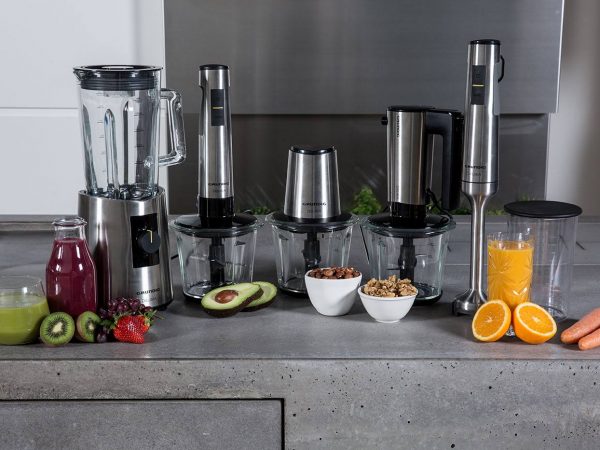
With the current global health crisis, taking care of our health has become a top priority. Living in a healthy way basically entails feeling good both mentally and physically. Achieving that depends on our habits and behaviours as well as on the environment in which we live. Following a healthy lifestyle generally includes changing some of the traditional eating patterns we are used to as well including more fruit and veggies in our diet. If this sounds a little challenging for you, know that there are some kitchen gadgets that can make sticking with your new diet plan a bit easier.
From gadgets that make eating more of the good stuff more appetizing, to the ones that help you prepare healthy meals with minimal fuss, the right kitchen gadget can help you stay on track. Here are some great kitchen products for healthy eating and tips on how to get the best out of them.
For a convenient and healthy on-the-go breakfast, make a morning smoothie! Fast and easy to prepare, a smoothie also helps you fit in a more varied range of fruits, vegetables and protein in your diet. Some models come with a single-portion blending cup accompanied by a lid, so they can be turned into a travel mug or bottle. Nuts, seeds and protein powders can also be mixed into smoothie creations, which is especially handy for those looking to get more protein in their diet. For a sweeter taste, consider using a healthy natural sweetener instead of sugar. And if you’re trying to cut down on dairy or attempting Veganuary, a blender can be extra beneficial for you as you can use it to make dairy-free milk, such as nut or rice milk.
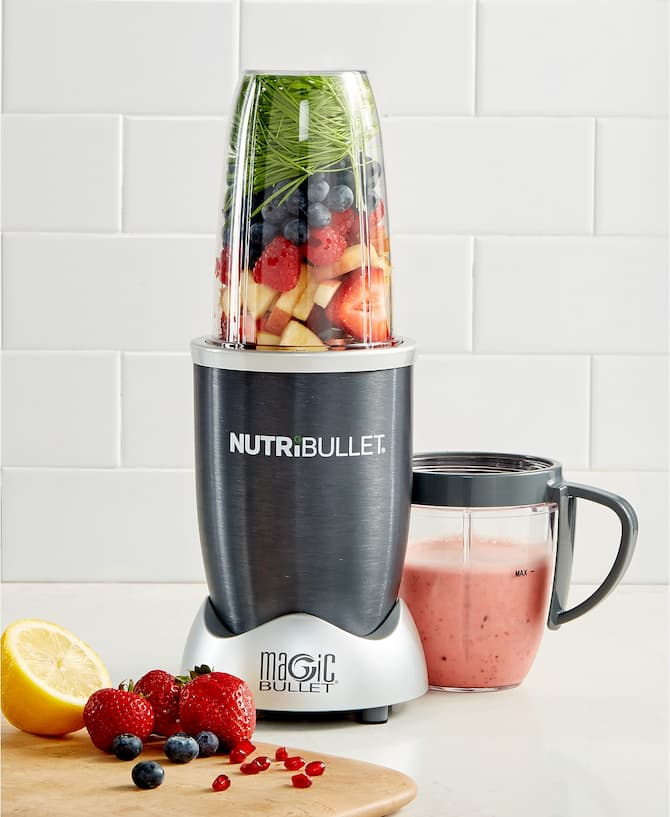
source: pinterest.com
What better way to include more fruit and vegetables into your diet than literally squeezing them in? Juicers are amazing kitchen products that take all the hassle of making fresh juices. Plus, you can go ultra-healthy with veg-based juices using carrots, beetroot and leafy greens. Some believe that juicing is actually better than eating whole fruits and vegetables because your body gets to absorb the nutrients better while also giving your digestive system a rest from digesting fibre. Juicing is said to help boost the immune system, remove toxins from the body, aid digestion and help you lose weight.
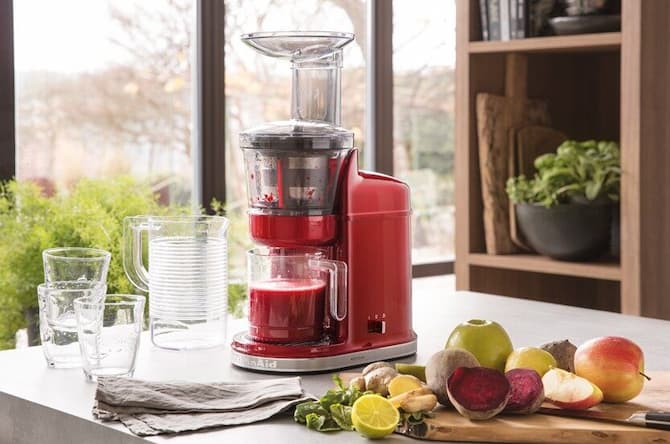
source: pinterest.com
With a good food processor, you can make homemade sauces, dips, nut butter and a lot more. This kitchen gadget will not only save you money but is also a more healthy option, as many store-bought products tend to contain added salt and sugar. And thanks to the slicing or grating attachment, you can sneak more vegetables into your everyday meals. This is a great way to cut down on fat and increase your nutrient consumption.
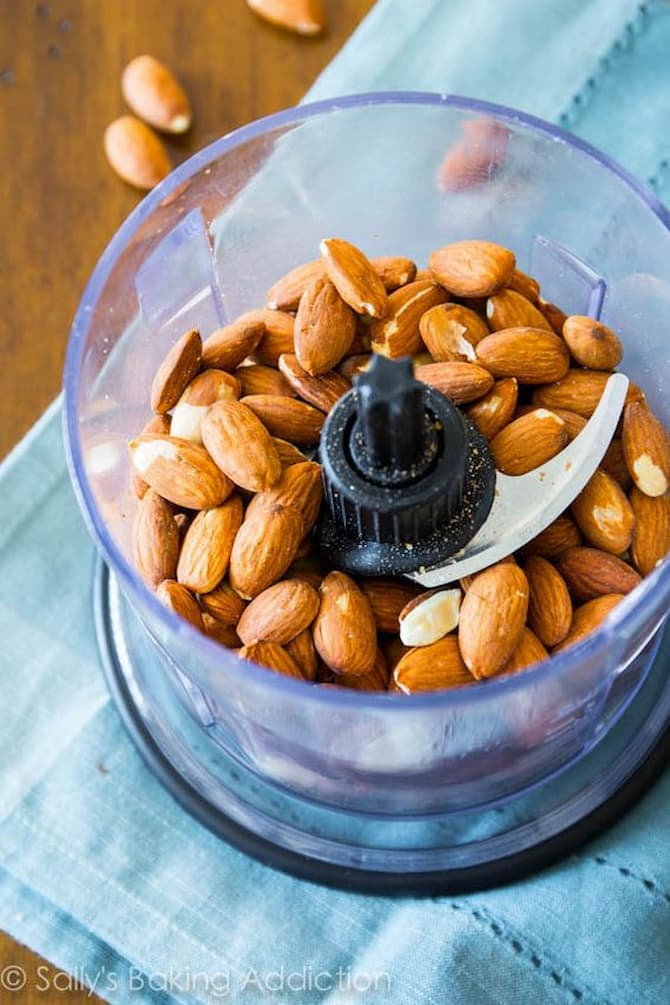
source: pinterest.com
Soup is not only a rich source of fibre (as you use the entire vegetable) but it is also a good way to cut waste and save money. You can use any leftover vegetable to make a batch of mixed vegetable soup for a cost-effective lunch. A soup maker allows you to make homemade soup easily and conveniently. It cooks and blends in 20-25 minutes, so there’s no need to hover over the hob or wash up lots of pans. All soup makers can make smooth or chunky soup. Some models give you more options, such as the ability to saute ingredients to maximise flavour.
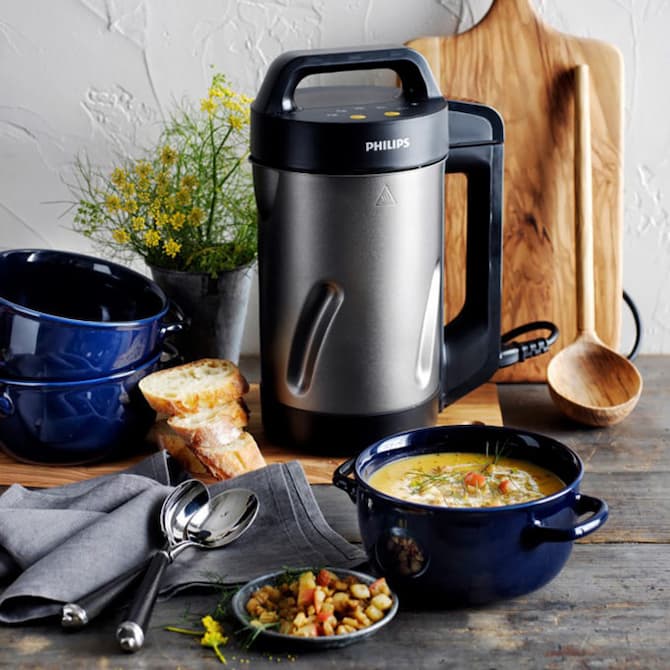
source: pinterest.com
As you can see, these kitchen gadgets can be of great help in eating a more balanced diet. Dieting may not provide your body with all the nutrients it needs and this is where vitamins supplements come in. When taken right, nutritional supplementation can make a dramatic impact on your health.
No matter which diet you follow, the food you eat nowadays, isn’t as nutrient-dense as it once was. Over the years, conventional farming has led to over-farmed land in the name of profit. Without proper crop rotation, the soil starts to lose nutrients, resulting in nutrient depletion in our food supply. Vitamins supplements can help meet your micronutrients daily recommendations or provide a more concentrated amount of nutrients than you can get through food alone.

source: herbaplusespana.com
For beginners, a daily multivitamin can help provide a good base for your health. It’s like a daily guarantee to ensure your body gets the vitamins and minerals it needs. It’s a way to make up for the shortfalls that happen when you don’t get what you need through food. Multivitamins are supplements that contain a variety of vitamins and minerals, about 13 vitamins and 15 minerals essential to your health. Other ingredients like herbs, amino acids and fatty acids may also be present in these supplements.

source: homestratosphere.com
Available in many forms, including capsules, tablets, chewable gummies, liquids and powders, multivitamins should be taken once or twice a day. Make sure you read the label of your chosen products and follow the recommended dosage instructions. Keep in mind that some may contain ingredients that can interact with medications, so talk with your doctor before starting to use a new supplement.
Ideally, your main focus should be getting most of the vitamin and minerals you need through food while using supplements to provide additional nutrients that you might lack.